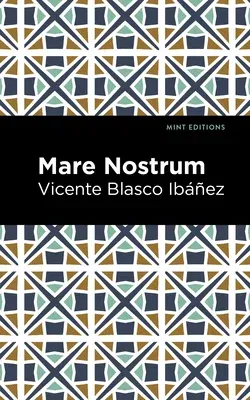Mare Nostrum (1918) is a novel by Vicente Blasco Ibáñez. Published at
the height of his career as a popular Spanish author, Mare Nostrum was
adapted into a 1926 silent film by Irish director Rex Ingram starring
his American wife Alice Terry, an icon of early cinema. Believed lost
for decades, the film has been recently rediscovered and restored. "All
that mankind had ever written or dreamed about the Mediterranean, the
doctor had in his library and could repeat to his eager little listener.
In Ferragut's estimation the mare nostrum ["Mare Nostrum" (Our Sea),
the classic name for the Mediterranean.] was a species of blue beast,
powerful and of great intelligence--a sacred animal like the dragons and
serpents that certain religions adored, believing them to be the source
of life." Raised in a proud Spanish family, Ulysses Ferragut is expected
to follow in his father's footsteps by becoming a doctor. Enamored with
tales of the Mediterranean as told by his seafaring uncle, nicknamed the
Triton, Ulysses chooses to become a sailor instead. As a young man, he
finds success as the captain and owner of the freighter Mare Nostrum,
but obligations to his wife and son force him to abandon his dream. As
the horrors of the First World War wreak havoc on Europe, the demand for
shipping makes it impossible for Ulysses to resist a return to the sea.
While in Italy, however, he finds more than he bargained for in the form
of Freya Talberg, a beautiful Austrian who harbors a dangerous secret.
With a beautifully designed cover and professionally typeset manuscript,
this edition of Vicente Blasco Ibáñez's Mare Nostrum is a classic of
Spanish literature reimagined for modern readers.


